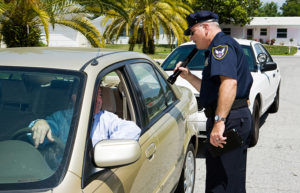March 24, 2017
The Fourth Amendment to the United States Constitution protects citizens from unlawful search and seizure. Pursuant to this rule, the police generally cannot search your car unless they have a warrant. However, there are several judicially-created exceptions to this rule. This is due to the Supreme Court’s theory of “reasonable expectation of privacy.” Under this doctrine, the police must have a warrant to search any location in which the suspect has a reasonable expectation of privacy.
The Court has held that suspects have a reasonable expectation of privacy in their cars, but this expectation is notably lesser than the level of privacy one can expect in one’s home. Thus, the police have more discretion to search cars than homes under this judicially-created automobile exception to the Fourth Amendment.
The Automobile Exception
While the police have more authority to search your car without a warrant than your home, this authority is not absolute. Because the Supreme Court has stated that suspects do have a limited reasonable expectation of privacy in their cars, there are only a handful of circumstances that will allow police to search your car without a warrant. Let’s take a look at them below:
- Consent: A police officer may search your car if you give him or her permission to do so.
- Probable cause: A police officer may search your vehicle if he or she has probable cause to believe there is evidence of a crime in your vehicle. “Probable cause” in these circumstances means that the police officer has a reasonable basis to believe that there is evidence of a crime in the place to be searched. Thus, in order for this exception to apply, the officer must either already suspect you of having committed a crime before you are stopped, or something you say or do during the course of the stop gives rise to probable cause.
- Protection: An officer may search your vehicle if they believe it is necessary for their own protection. In most cases, this amounts to a quick sweep of the car to discover hidden weapons.
- Search incident to arrest: Police may do a quick sweep of your car if you have been arrested and they believe there is evidence of your crime in the vehicle.
Note that none of these situations apply to ordinary stops on the basis of breaking traffic laws, such as being pulled over for speeding. A police officer does not have the authority to search your vehicle on the during a routine traffic stop, unless something occurs during the course of the stop that gives rise to one of the above exceptions.
Contact a St. Petersburg Criminal Defense Attorney
This article is by no means an exhaustive examination of the automobile exception to the Fourth Amendment. Most cases of vehicle searches are more complex than we have time to discuss here, and it is always a good idea to have an attorney examine your individual case. If you were pulled over and believe the police have searched your vehicle unconstitutionally, please contact the attorneys at the Khonsari Law Group for a free consultation by calling us at 727-269-5300.


